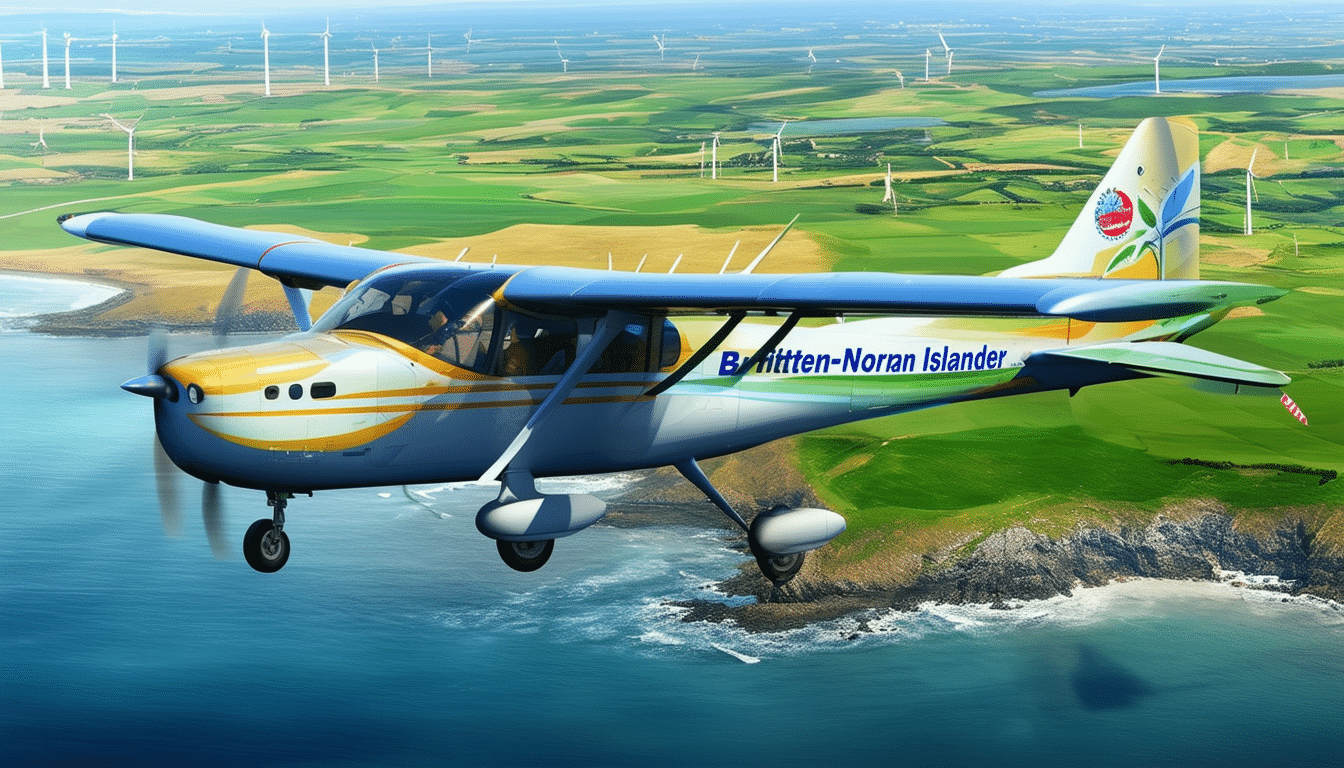Britten-Norman drives sustainable aviation by adapting its Islander aircraft for the use of unleaded fuel

Britten-Norman positions itself as a pioneer in sustainable aviation by introducing innovations in its iconic Islander aircraft. The recent adaptation of the model to use unleaded fuel marks a significant advancement in reducing the environmental impact associated with aviation. This modification not only promotes the use of cleaner fuels but also offers economic and safety benefits for operators, thus demonstrating the industry’s commitment to a more responsible and sustainable future.
The company Britten-Norman, known for its iconic Islander aircraft, has made a significant step towards sustainability in aviation by modifying its BN2B-26 model to allow the use of unleaded fuels. This innovative adaptation, which incorporates Lycoming O-540-E4C5 piston engines, not only has the potential to reduce the environmental impact of aerial operations but also offers economic benefits for operators of these aircraft.
Technical Modifications and Benefits of the Adaptation
The adaptation of the Islander aircraft includes unleaded fuel specifications approved by Lycoming, such as ASTM D7547 (UL 91 and UL 94), DEF-STAN 91-090 (UL 91), and HJELMCO (91/96 UL). These fuels represent a cleaner and safer alternative, as they will help mitigate harmful emissions, providing operators with additional advantages such as lower fuel costs and reduced maintenance expenses. The ability to access various fuel options is crucial, as is extending service intervals, which will deliver high performance for the Islander aircraft.
FAA’s Push Towards Greener Alternatives
The recent decision by the Federal Aviation Administration (FAA) of the United States to gradually phase out the use of leaded AVGAS has accelerated the search for more sustainable alternatives in aviation. This growing demand has led Britten-Norman to integrate the necessary modifications to certify new types of fuel that can be used in the Islander, thus opening the door for the future implementation of even more innovative and eco-friendly fuels.
Britten-Norman’s Commitment to Sustainability
Mark Shipp, technical director and chief designer of Britten-Norman, has emphasized the company’s commitment to a sustainable future through the Green Futures initiative. This development in the Islander model is considered a milestone for the numerous operators who use this aircraft, as they will have the opportunity to reduce their emissions thanks to the introduction of unleaded fuels. This advancement reinforces the trend towards sustainability in the aerospace industry, making Britten-Norman a leader in the field of green aviation.
A Cleaner Future in Aviation
The modification of the Islander aircraft to allow the use of unleaded fuel marks a significant step towards a cleaner future in aviation. With the commitment of companies like Britten-Norman, the aerospace industry is moving towards more sustainable practices that not only benefit the environment but also ensure economic growth for flight operators. These initiatives are crucial for building a more responsible aviation industry that is aware of its impact on the planet.
To learn more about the importance of biofuels in reducing fuel costs, further information can be found at this link: biofuels. Additionally, the collaboration between Vueling and Repsol at the Málaga Festival is a clear example of initiatives that promote a more responsible flying experience, accessible here: Vueling and Repsol. To learn more about technologies that help reduce fuel consumption, it is useful to check this page: reduction technologies. Furthermore, innovative initiatives to minimize the ecological footprint of the aviation industry can be explored at the following link: innovative initiative. Finally, Málaga has received its first eco-friendly and sustainable flight, a significant event on the path to sustainability: eco-friendly flight.
Britten-Norman and its Commitment to Sustainable Aviation
Britten-Norman positions itself as a pioneer in the transition to more sustainable aviation by introducing significant modifications to its iconic Islander aircraft. This adaptation not only allows the use of unleaded fuels but also reflects the manufacturer’s willingness to reduce its carbon footprint and contribute to a cleaner future in the aerospace sector.
The implementation of Lycoming O-540-E4C5 piston engines in the BN2B-26 model of the Islander is a relevant fact that demonstrates the company’s commitment to the environment. These changes are a step forward in the search for more eco-friendly alternatives, allowing operators to access approved fuels that meet sustainability standards. This not only decreases harmful emissions but also brings significant economic benefits for the owners of these aircraft, such as reduced costs for fuel and maintenance.
The decision by the Federal Aviation Administration (FAA) of the United States to restrict the use of leaded AVGAS underscores the urgency of adapting the air fleet to cleaner fuels. In this context, Britten-Norman demonstrates its proactivity by paving the way for future innovative and environmental-friendly fuels, solidifying its position as a leader in sustainable aviation.
This effort not only benefits operators and the aerospace industry but also sets a model for other aircraft manufacturers. By promoting the adoption of cleaner technologies, Britten-Norman inspires the entire sector to move towards a future where sustainability and efficiency go hand in hand, establishing a new standard for the aviation of tomorrow.




